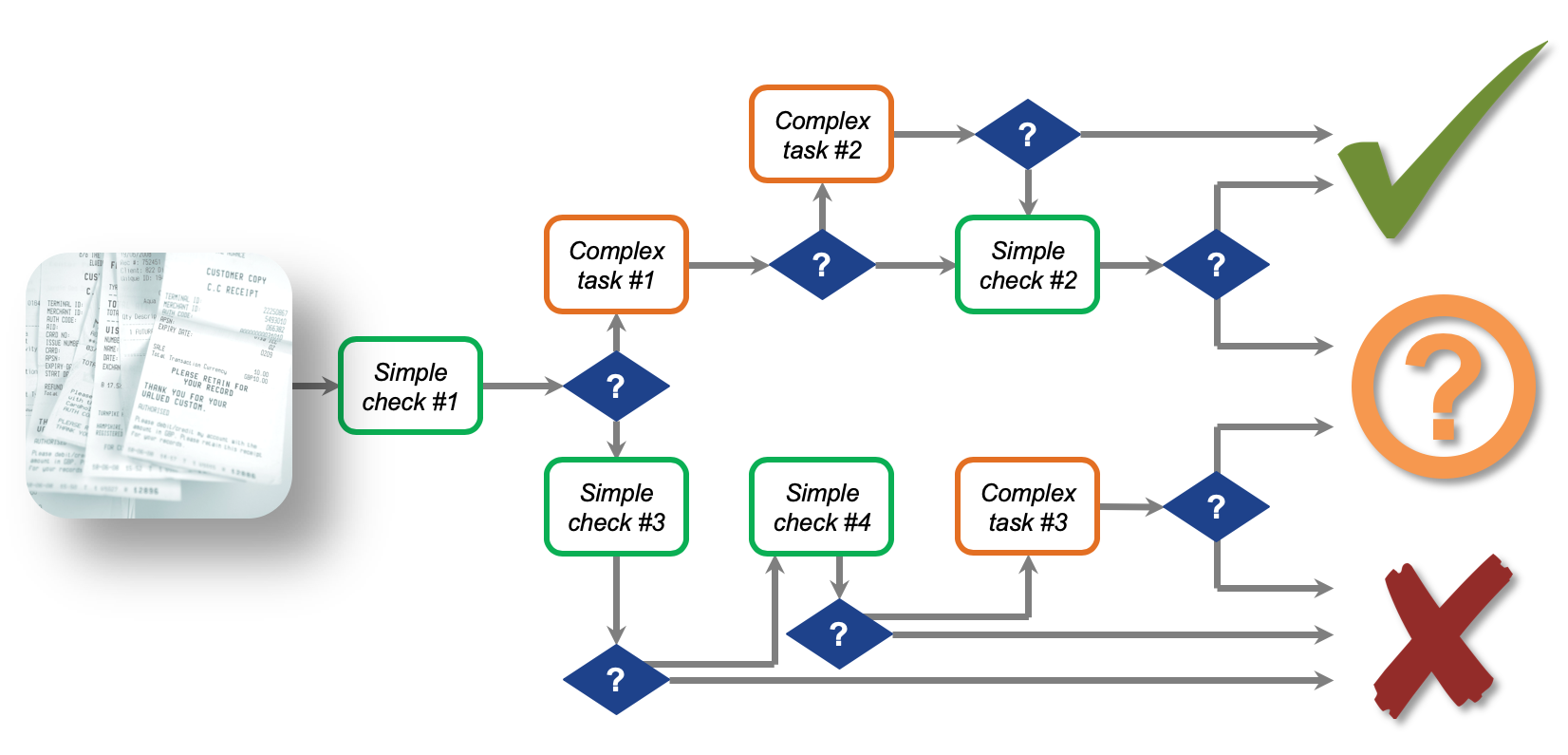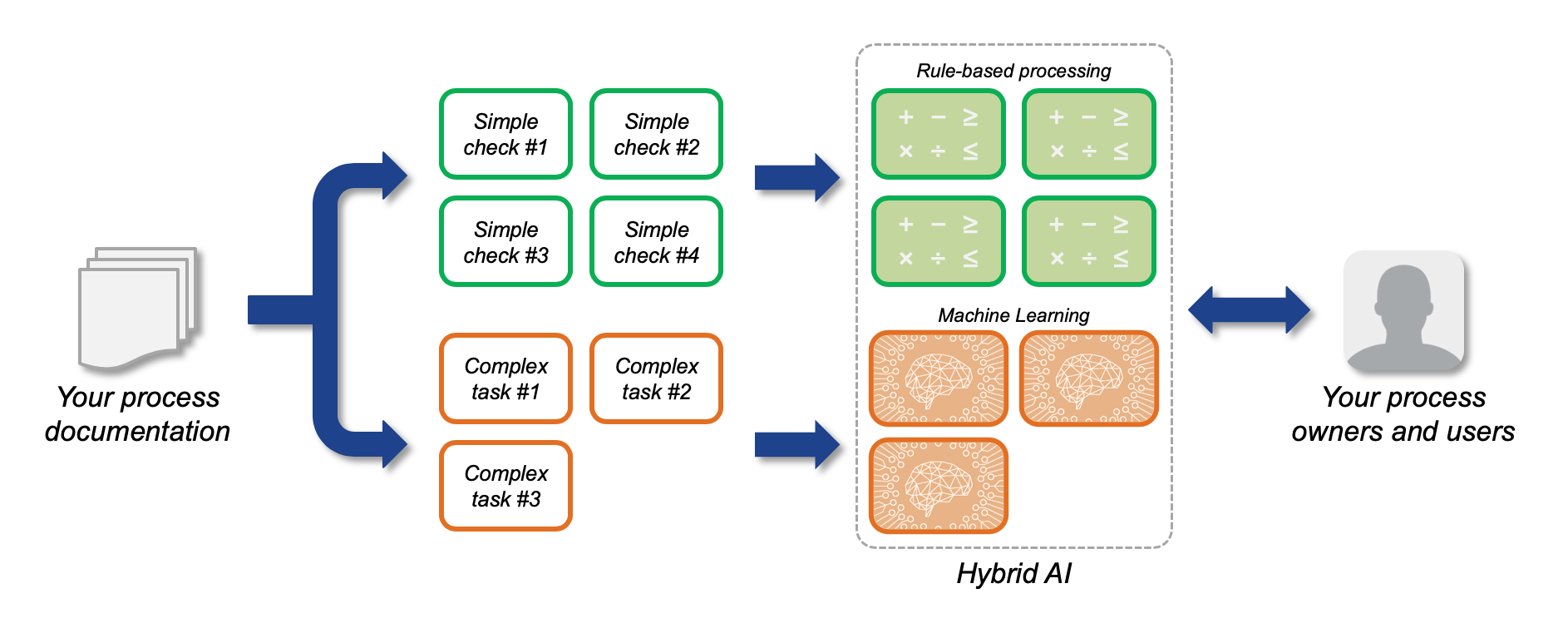Increase operational efficiency of core business processes through AI-supported, Intelligent Process Automation (IPA)
As businesses focus on digitally transforming their core operational processes, they strive to minimize wasted work and effort, primarily to reduce operational costs. To this end, many companies are turning to Business Process Automation (BPA) and Robotic Process Automation (RPA) both of which model and perform sequences of recurring tasks that would have previously been performed by one or more human experts.

The diagram above illustrates a decision tree model of a business process which comprises both 'simple' checks and 'complex' tasks. A simple check is a business requirement that can be translated as a pre-defined logical rule, for example, checking if a process initiator is manager-level or above. A complex task requires a deeper understanding of the data in order to make an informed decision or even prediction. For example, an expense appraisal process might require an employee to write the reason why they travelled by taxi instead of taking public transport. In this case, the appraiser has to make sense of the explanation and make a judgement if the reason meets the company expense policy. These more complex decisions cannot be made with BPA / RPA technology alone, and Intelligent Process Automation (IPA) methods need to join the mix [1].

With IPA, a data-centric business process, comprised of its simple and complex decisions as described above, can be fully automated through a combination of rule-based processing and Machine Learning techniques. Furthermore, with the implementation of a user feedback loop, the system is able to continuously learn, meaning that the decisioning models improve over time and have the ability to adapt to external changes when they occur (read our case study for more details).
Inspirient's IPA technology stack, including the Inspirient Automated Analytics Engine, can be used to efficiently automate these data-centric processes which, currently, rely heavily on human decision-making, such as routing customer inquiries, appraising expense claims, or improving regulatory compliance and risk management. The key benefits of Intelligent Process Automation for our customers is reaching optimal operational efficiency with a reduced dependency on human experts, which results in both reduced cost and resources being able to spend their time on more value-generating activities.
Efficiency gain is modeled via the FTE resources currently performing the process that is to be automated.
FTE days gained / year
Savings / year
Would you like to achieve superior efficiency through automation?
The Inspirient Automated Analytics Engine automates the entire data analytics process end-to-end: From the assignment of input data, pattern and outlier detection, automated visualization of patterns, weak points and opportunities to automatic generation of textual explanations and recognition of the underlying relationships and rules. Most other analytics solutions rarely include these textual explanations and observations regarding the underlying data relations, which are both critical to provide a deeper level of analysis and more actionable conclusions.
- Georg Wittenburg and Matthias Tyroller. Intelligentere Prozessautomatisierung, In REthinking Finance, 3/2020:76-83, June 2020